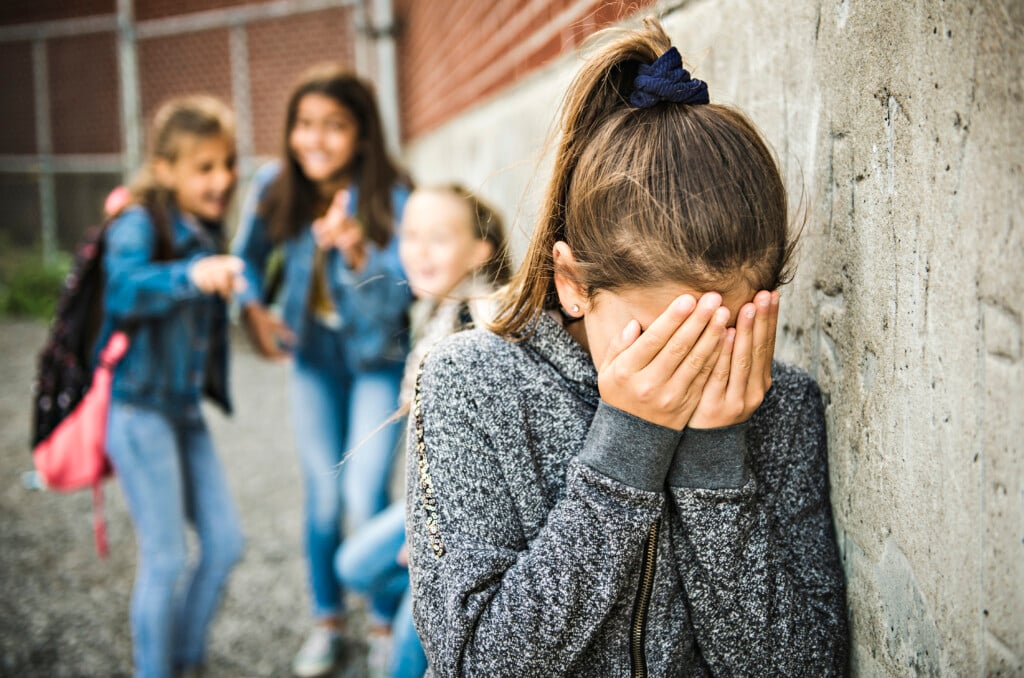Nex Benedict’s Tragic Suicide: A Call to End Bullying in Schools

In my January 2024 article, “Combating Youth Suicide in Oklahoma: A Call for Action,” I shed light on the alarming rise in suicide rates among our state’s youth. In 2019, Oklahoma faced a sobering reality as suicides surpassed all other causes of death among individuals aged 10-17 years, eclipsing the national average. This troubling trend underscores the urgent need for concerted efforts to address the mental health challenges facing our young people with specific anti-bullying legislation and policies.
Among those deeply impacted by this crisis was Nex Benedict, a nonbinary student at Owasso High School, whose tragic death serves as a reminder of the devastating consequences of bullying and discrimination. On February 8, 2024, Nex’s life was cut short at just 16 years old, leaving behind a grieving family and a community call to action to address bullying in our schools.
Throughout Nex’s time at school, they had endured a history of being bullied. The day prior to their death, Nex was taunted by other students and was involved in a physical altercation at school. The following evening, Nex was rushed to the hospital where Nex was pronounced dead. While the official cause of Nex’s death was not announced for over a month, officials have recently confirmed it as a suicide.
Nex’s story serves as a stark illustration of the profound consequences of bullying, particularly for marginalized individuals like LGBTQ+ youth. In the wake of Nex’s tragic suicide, we must confront the root causes of bullying and take decisive action to create safer environments for all students.
Bullying Problems in Oklahoma
Oklahoma’s standing as the ninth-ranked state in the country for bullying incidents, according to Wallethub, underscores the pervasive nature of this issue. The state is also ranked 50th in school quality and 31st in safety, with only one state separating us from the bottom of the list, which further highlights the urgency of addressing this pressing concern. As students grow older, bullying tends to escalate in severity and sophistication, exacerbated by the influence of technology. Phones and social media platforms provide bullies with additional avenues to inflict harm, making it imperative that we address this modern challenge with urgent solutions.
If Oklahoma’s goal is to be a top 10 state in education, we have work to do because we are top 10 for some of the wrong things. As we strive for excellence in our educational system, it is paramount that we prioritize the safety and well-being of our students. By addressing the root causes of bullying and implementing comprehensive anti-bullying measures, we can create a learning environment where every child feels safe, supported and empowered to succeed.
Segments of our population, including LGBTQ+ youth, individuals with disabilities and socially isolated students are disproportionately targeted by bullies. We must recognize and address the systemic inequities that contribute to their vulnerability, fostering a culture of inclusivity and acceptance in our schools.
Despite the absence of specific bullying legislation in Oklahoma, recent executive orders have sought to curtail diversity, equity and inclusion (DEI) programs in schools—a misguided approach that only exacerbates the problem. It’s time for our state to prioritize the well-being of all students and enact comprehensive anti-bullying measures that protect the rights of marginalized communities.
A Need for Action
The tragic death of Nex Benedict highlights the need for action. Harmful rhetoric and anti-LGBTQ+ policies create a toxic environment that emboldens bullies and contributes to the suffering of vulnerable students. We must send a clear message that hate has no place in our schools, and that every student deserves to learn and thrive in an environment free from fear and discrimination.
In memory of Nex Benedict and all those who have been impacted by bullying, let us come together as a community to demand change. It starts with voting, holding our leaders accountable, advocating for inclusive policies and fostering open dialogue with our children. By standing united against bullying, we can honor Nex’s memory and create a brighter, safer future for all Oklahoma students.
How to Talk to Kids About Bullying
- Don’t wait for bullying to happen. Children can be afraid to talk about bullying with their family. Parents can create trust with children by initiating open, honest discussions. These dialogues provide opportunities to communicate values and learn about your child’s experience. They make it easier for your children to turn to you if they witness or experience bullying.
- Have thoughtful talks with your child every day. Keep it casual and curious. Chat in the car, over homework, dinner or breakfast. Ask open-ended questions.
- Use your experience to help them talk about theirs. Share an age-appropriate story about bullying you experienced or witnessed. Talk about how it was distressing, scary, upsetting…
- Talk about bullying in a general way. You might say, “I’ve been hearing about cyberbullying a lot. Have you ever seen it? How did they handle it?” or “My friends were talking about bullying happening at their child’s school. Do you ever see bullying? How did the school deal with it?”
- Help them identify bullying. Ask open-ended questions to get more information about what happened. Ask, “Where did this happen? How did the child being bullied react? Were they hurt or upset? (Bullying and teasing are different. If someone was upset by it, then it is likely bullying.) How would you have felt if it had happened to you? Do you think this incident was meant to make someone look bad? Do you think the person doing it wanted to purposely exclude or humiliate the other person?”
- If your child was bullied or cyberbullied, stay calm. Ask questions to hear about the experience, provide support and help prevent it from happening again. Determine if you need to talk to the school about it. Ask, “Has this happened before? What will make you feel safer? This isn’t your fault; no one deserves to be bullied. Can I reach out to the school/teacher to talk to them about it? Can we come up with some things you can do if it happens again?”
For complete tips and more information on how to identify and stop bullying, go to stopbullying.gov.
If you are thinking about suicide, please call the National Suicide Prevention Lifeline at 800-273-TALK (8255).
 Dr. Tamecca Rogers is Director of Diversity, Equity and Inclusion at Tulsa Technology Center. She is a writer and mom to three boys who love adventures.
Dr. Tamecca Rogers is Director of Diversity, Equity and Inclusion at Tulsa Technology Center. She is a writer and mom to three boys who love adventures.




